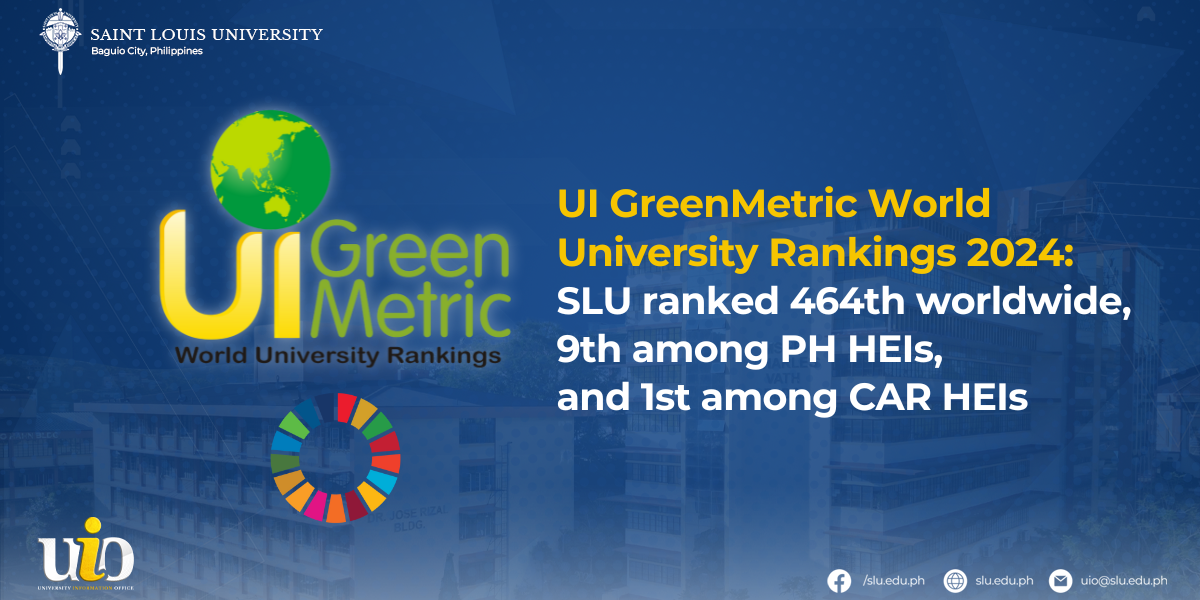Saint Louis University (SLU) has achieved significant advancement in the 2024 UI GreenMetric World University Rankings released on 12 December 2024, ranking 464th out of 1,477 higher education institutions (HEIs) across 95 countries worldwide. As it can be recalled, last year, SLU ranked 658th.
With a total score of 6,821, SLU’s commitment to sustainability and environmental stewardship has gained international recognition.
Further, SLU achieved the top rank among HEIs in the Cordillera Administrative Region (CAR) and secured the ninth position overall in the Philippines as a recognized green campus.
The UI GreenMetric World University Rankings assesses universities’ environmental initiatives and commitments through 39 indicators across six criteria: Setting and Infrastructure (SI), Energy and Climate Change (EC), Waste (WS), Water (WR), Transportation (TR), and Education (ED). This comprehensive evaluation highlights SLU’s dedication to fostering sustainable practices within its academic community.
SLU garnered a score of 960 in SI, 1700 in EC, 1125 in WS, 650 in WR, 1210 in TR, and 1175 in ED.
This feat underscores SLU’s dedication to fostering a greener campus and implementing sustainable practices within its academic community. As a premier Catholic university, SLU adheres to its core values of Competence, Creativity, Social Involvement, and Christian Spirit, while aligning its efforts with the United Nations Sustainable Development Goals (UN SDGs) and the principles outlined in Laudato Si’ for caring for our common home.
UI GreenMetric World University Rankings 2024
The 15th edition of the UI GreenMetric World University Rankings with the theme, “Instituting UI GreenMetric World University Rankings: The Way Forward,” emphasized a commitment to collaborative sustainability efforts.
The rankings are based on findings from an online survey assessing sustainability initiatives and advancements at universities worldwide. Engaging university leaders and stakeholders is expected to enhance focus on critical issues such as climate change, clean energy, water conservation, waste recycling, green transportation, and sustainability education and research.







